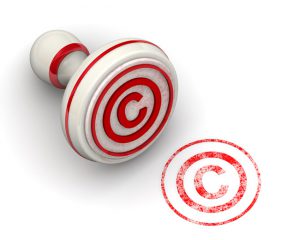 Members of the McGill community are all familiar with McGill’s wired and wireless network service, which provides access to the Internet. Many of you are probably reading this on the McGill network right now. What you may not realize is that in providing this service McGill has a responsibility, as do all Internet Service Providers, to ensure our network is used in accordance with Canadian law. As such, we must comply with the Notice and Notice Regime of Canada’s Copyright Act, which obliges all Internet Service Providers to forward copyright infringement claims to users who have downloaded copyright-protected content (i.e., movies, music and other files) from their networks (Copyright Act, R.S.C. 1985, c. 42).
Members of the McGill community are all familiar with McGill’s wired and wireless network service, which provides access to the Internet. Many of you are probably reading this on the McGill network right now. What you may not realize is that in providing this service McGill has a responsibility, as do all Internet Service Providers, to ensure our network is used in accordance with Canadian law. As such, we must comply with the Notice and Notice Regime of Canada’s Copyright Act, which obliges all Internet Service Providers to forward copyright infringement claims to users who have downloaded copyright-protected content (i.e., movies, music and other files) from their networks (Copyright Act, R.S.C. 1985, c. 42).
To make this compliance easier, McGill will soon deploy an automated Copyright Infringement Notification system to manage these legal obligations.
In summary, under the Notice and Notice regime of Canada’s Copyright Act (Copyright Act, R.S.C. 1985, c. C-42), McGill University is required to:
- Forward any infringement notices received from copyright holders, to the individual associated with the IP address indicated in the infringement notice.
- Notify the copyright holder once the notice is forwarded; or inform them that the notice could not be forwarded, in the case that no individual could be associated with the IP address specified in the infringement notice.
- Retain all records associated with these notices for 6 months. However, if the claimant commences proceedings relating to the claimed infringement and notifies the person before the end of those 6 months, McGill must keep the notices for one year after the day on which the person receives the notice of claimed infringement.
The new system, to launch by end of June, 2017, will enable us to enact the requirements of the Notice and Notice regime in a more timely and systematic way.
The system will receive digitally signed copyright infringement claims submitted by email. If the digital signature and format of the claim meet the specified requirements, the system will then look up the IP address identified in the claim. If a match is found, the system will forward the claim to the McGill network account holder who used the IP address at the time of the alleged infringement. The system will also send a notice back to the copyright holder informing them that either the claim was forwarded (if an individual was identified), or it could not be forwarded (if no individual could be identified).
McGill will not validate the claim itself, as there is nothing in the notice that proves the claim is justified. So, receiving a notice of copyright infringement does not mean the recipient has been found guilty of conducting illegal copyright infringement activity.McGill will never send any identifying information about the alleged copyright infringer back to the claimant. The recipient of a claim should not panic, or take steps to contact the claimant, even if the notice contains threats of further legal action.
If you happen to receive a copyright infringement notice from the system, please visit the FAQs page to understand why it has been sent, and what actions, if any, you should take.
In closing, we remind you that illegally downloading or sharing files on the McGill network is not only a violation of the Canada’s Copyright Act but also violates McGill’s Policy on the Responsible Use of McGill Information Technology Resources. Therefore, any such illegal activity should be ceased immediately.

How does this system affect McGill’s commitment to student and faculty privacy if the system requires monitoring the user’s activities? Does this mean the ISP—which so far has remained undisclosed, so we cannot independently review their privacy policies— has been able to track individual IPs before, or is this something McGill is now allowing? Is McGill concerned over chilling effects in academia?
Also, could the McGill please follow up with more information about the notice that McGill will send to the alleged copyright holders? What exactly will be in McGills reply?